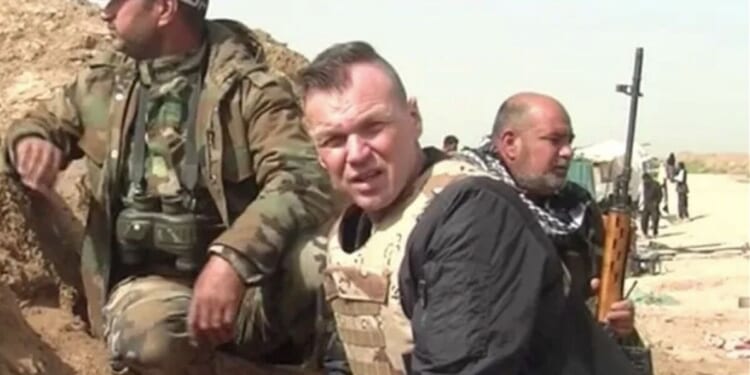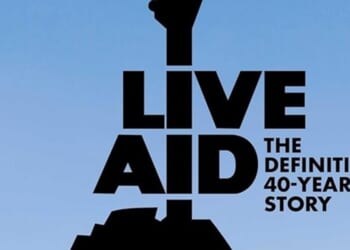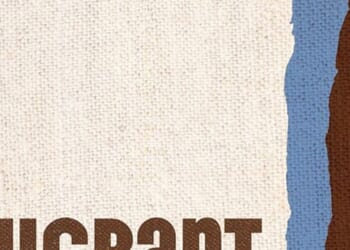Horrific allegations have emerged that wealthy, gun-obsessed tourists paid up to £88,000 to participate in depraved ‘human safaris’ during the devastating siege of Sarajevo in the 1990s, with children’s lives horrifically carrying a premium price tag.
Italian prosecutors are investigating the disturbing claims, which suggest that up to 100 bloodthirsty individuals, primarily from far-right circles across Europe, the US, and Russia, funded the sickening murder games, as reported by La Repubblica newspaper.
The once-vibrant capital city of Sarajevo suffered unimaginable horrors during the Bosnian War, enduring a relentless siege that lasted almost four years – the longest in modern warfare history. Over 10,000 innocent lives were brutally cut short by incessant shelling and sniper fire between 1992 and 1996, as the city was held hostage by the ruthless onslaught.
The main boulevard, grimly nicknamed ‘Sniper Alley’, became a notoriously treacherous gauntlet as Bosnian Serb forces encircled Sarajevo, determined to force the government’s surrender to their demands at any cost. Residents lived in constant fear, never knowing when the next bullet might strike.
Rumours of depraved ‘murder vacations’ spark global outrage
Whispers of these twisted tourist trips have long haunted the region, but the appalling allegations only garnered widespread attention after the 2022 release of “Sarajevo Safari,” a chilling documentary by Slovenian filmmaker Miran Zupanic that delved into the dark underbelly of wartime atrocities.
“What’s shocking about this story and I think why it’s grabbed the public imagination is that it’s wealthy individuals that have allegedly paid to do this,” Professor Kenneth Morrison, a renowned Balkans expert, told The Sun. “They were hunting human prey with no regard for human life and that’s why it’s so shocking.”
Prof Morrison noted the disturbing parallels some are drawing to the infamous Epstein scandal, highlighting a perceived “culture of impunity” among elites who seemingly act without fear of consequences – even when their alleged crimes are as heinous as cold-blooded murder.
‘It’s not dark tourism, it’s straight-up murder,’ says veteran tourist
Veteran ‘dark tourist’ Andrew Drury, who has ventured into war zones from the dusty streets of Mogadishu to the mountain passes of Afghanistan over the past 20 years, told The Sun of his utter disgust at the so-called ‘human safaris’, branding the purported practice as “pure lunacy” and bluntly stating: “It’s not dark tourism, it’s straight-up murder, plain and simple.”
The Guildford construction boss revealed he was once sickeningly offered the chance to take a sniper shot while visiting the frontline in war-torn Kirkuk, Iraq – an offer he resoundingly refused. “I wouldn’t even look into the scope, I couldn’t take another human life, I couldn’t even kill an animal but apparently there are people out there doing it all the time,” he recalled with revulsion.
Drury, who has faced down gun barrels and narrowly escaped kidnapping during his daring travels, said he once had a price on his head while traversing Iraq with his cousin. “I was travelling with my cousin in Iraq when we were approached by some American guys, who I imagine could have been intelligence officers, telling me I had a price tag on my head,” he recounted, highlighting the ever-present dangers faced by those who seek out conflict zones.
Deadly lure of the ‘perfect killing ground’ in Sarajevo’s mountains
Sarajevo’s geographical layout and proximity to the rest of Europe made it a disturbingly convenient location for these alleged ‘human safaris’, with the city’s mountain-ringed valley providing a terrifyingly advantageous perch for snipers to unleash hell on the innocent civilians below.
Prof Morrison explained that the exorbitant sums paid by these so-called ‘tourists’ would have covered far more than just the twisted thrill of gunning down men, women and children going about their daily lives. “It would have required being flown in before being safely transported in military vehicles to a location they could snipe from before being safely returned at the end of the day or weekend,” he said, estimating that a similar sinister scheme today could cost up to an eye-watering £200,000.
The shadowy organizers behind these alleged murder vacations would have had to grease many palms to make it happen, from covering transportation and the cost of smuggled weapons to paying off soldiers loyal to the notorious Bosnian Serb leader Radovan Karadzic, who was found guilty of genocide and crimes against humanity in 2016.
Echoes of a dark history in media and ancient ‘blood sports’
Shockingly, the concept of human-hunting is not without historical precedent, with the upper echelons of ancient Sparta known to have stalked and slaughtered members of their servile populace for sport in a grotesque display of power and brutality.
Even in more recent times, the controversial 2005 horror film “Hostel” provoked outrage and accusations of exploiting real-world suffering for its graphic depiction of murder vacations – a key plot point director Eli Roth claimed was inspired by a dubious Thai website purporting to offer such depraved and deadly services.
Roth revealed he was unable to fully verify the authenticity of the alleged murder-for-hire site without compromising his own safety. “To get any further [in my research] I would have had to give personal information and I figure these people kill people for a living,” he admitted in a 2006 interview, underlining the very real threats that lurk in the darkest corners of the global tourism industry.
Grappling with the thorny ethics of ‘dark tourism’ phenomenon
The ethics of visiting sites associated with profound human suffering and tragedy have long been a subject of intense debate, with many experts arguing that respectfully bearing witness to past atrocities at places like the Auschwitz concentration camp or the 9/11 Memorial can serve an important educational purpose and ensure that history’s darkest chapters are never forgotten.
However, the idea of actively and eagerly seeking out active war zones and sites of ongoing human rights abuses as a tourist remains highly controversial, with critics arguing that such practices exploit and trivialize the pain of others and can even contribute to further destabilization in fragile regions.
Drury, who gained global notoriety as one of the world’s most prominent war tourists, expressed profound regret and remorse for his past actions, which he now views as reckless and morally bankrupt. “I was terribly selfish, it was an irresponsible thing to do,” the married father of four admitted, revealing that participating in the hard-hitting documentary “Danger Zone” left him feeling “sick and ashamed” of his former thrill-seeking self.
The reformed adrenaline junkie had strong words of caution for anyone considering following in his misguided footsteps: “If you want to help, join some organization, don’t do it for self-gratification.”
Justice and healing for a city scarred by unspeakable betrayal
For the shell-shocked citizens of Sarajevo, the physical and emotional wounds inflicted during the city’s 1,425-day siege remain excruciatingly raw, even as the years stretch on and the once blood-soaked streets slowly return to a semblance of normalcy.
“There is a sense that justice was never fully served, that those who were responsible for some of the crimes that took place were never prosecuted and I think the news of this investigation will be welcomed,” Prof Morrison reflected somberly, noting that many of his Sarajevo friends’ lives were irrevocably shattered by the conflict.
Perhaps most disturbingly, many residents were brutally betrayed by those they once called friends and neighbors as the fabric of society unraveled under the relentless onslaught. “The terrible thing about this war is that it was, in large part, their neighbours who did this to them – sometimes the people that lived in the same apartment blocks or the people they went to school with,” Prof Morrison said. “They were the ones that turned the guns on them so psychologically, that’s a very difficult thing to move on from. You can never really fully trust again.”
As Italian authorities work tirelessly to unravel the tangled web of evidence surrounding these blood-curdling allegations of ‘human safaris’ in Sarajevo, there is a flicker of hope that the innocent victims and survivors of the city’s darkest chapter may finally find a measure of long-overdue peace and justice.
For the alleged perpetrators who saw the priceless sanctity of human life as little more than a macabre holiday package to be bought and sold, the reckoning may be just beginning. If proven true, these twisted pay-to-slay schemes would represent a horrifying new low in the already murky and morally fraught world of dark tourism.
But by dragging these long-whispered atrocities into the unforgiving light of justice, there is still a chance that future crimes could be prevented.

















